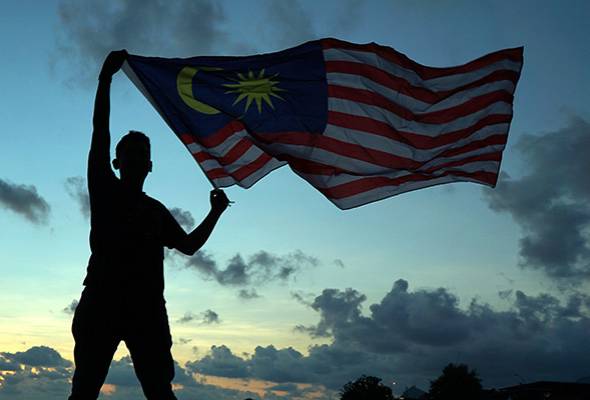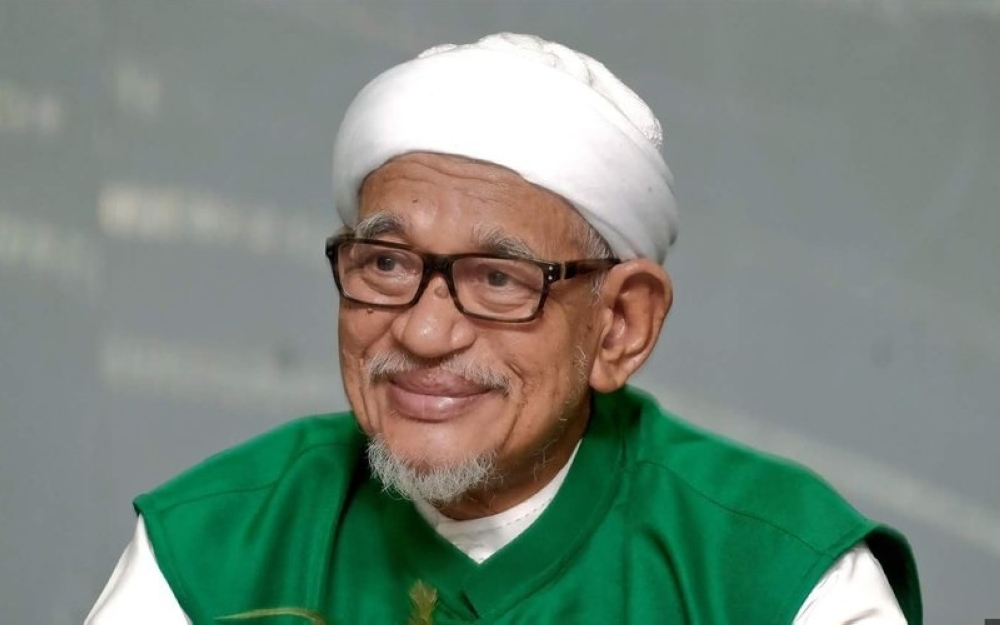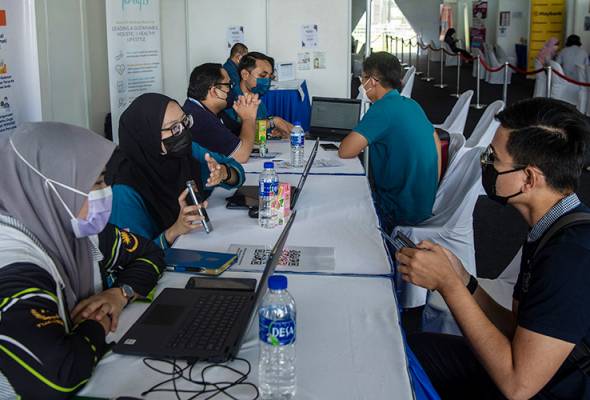
Published by Astro Awani, MYsinchew, SinarDAILY & Asia News Today, image by Astro Awani.
Malaysia isn’t short of good promises. We are short of good and sustainable implementation.
National budgets, policy papers and blueprints carry little weight if it doesn’t commit to strict timelines and key performance indicators (KPI) that cover real and measurable outcomes and impacts that are fair and equitable to all.
What Malaysia needs in order to be on the right track is to have trustworthy and competent individuals helming key organisations and institutions that are independent and empowered. Furthermore, these key organisations must operate in a transparent governance ecosystem and use transparent systems.
Ultimately, they must be governed by a clear input-output-outcome-impact (IOOI) model for effective monitoring and enforcement of strict timelines and KPIs.
Therefore, it doesn’t really matter what politicians write in their election manifesto if it doesn’t commit to key institutional and structural reforms, which are essential for the successful implementation of these promises.
It is easy for rival political parties or coalitions to up the ante on who can make better offers without real binding commitments, and without detailing how their policies, targets and action plans will be sustainably funded and properly implemented.
For example, how exactly will one million high-paying jobs be created? Economic growth, a fair business ecosystem, and strong governance are intertwined.
How will free education, electronic goodies, and 100% 5G coverage be financed and implemented?
Given that politicians seem hung up on the use of statutory declarations (SD) as a sign of political support, then perhaps so should the election manifesto be signed with SDs that are made public before election day.
Even then some might even say SDs are not actual binding contracts, similar to the notion that an election manifesto isn’t a Bible.
Though we are left only take these promises at face value with a healthy dose of salt, this is the only source of reference, or receipt, that the people can refer to.
Pakatan Harapan’s GE15 Action Plan came out first, indicating they are most ready for what they want and are not waiting for others to develop a “copy-paste-paraphrase-upgrade” version.
Their brand and central messaging have always been about reforms, but their action plan listed ten key focus areas covering crucial aspects such as socio-economy, healthcare, disaster mitigation, environmental preservation and the empowerment of Sabah and Sarawak.
Then came Perikatan Nasional’s (PN) “Prihatin, Bersih, Stabil” manifesto, with 12 core issues and over 200 initiatives issues that appear to centre around improving economic competitiveness and increasing people’s quality of life.
This includes promising high-value job creation, reduction of PTPTN loans and goodies for students, which is likely targeting the wave of more than six million new voters arising from Undi18 and automatic registrations.
The PN government was associated with many forms of assistance during the pandemic, and even if the effectiveness or sufficiency is debatable, at least they can say that they have the experience and the track record.
Though PN’s manifesto mentioned various goals to improve governance such as the prohibition of foreign political funding, PN’s focus on fighting the Covid-19 pandemic did not result in the enactment of crucial institutional reforms.
Key events such as the declaration of a Covid state of emergency during political turmoil and the Sabah state elections which resulted in waves of infections could be strongly associated with PN’s power struggles, working against its “clean politics and administrations” manifesto.
That doesn’t mean it’s easier for PH to sell its story either. Despite hefty promises, PH was unable to fulfil some of them after the 14th General Election (GE14). Of course, this is not entirely their fault and one or a few individuals didn’t keep their promises.
At the very least, PH has a short tenure and the Sheraton Move as an excuse, but the same cannot be said for Barisan Nasional (BN) that helmed the government for six decades.
That doesn’t mean BN isn’t serious to turn over a new leaf, but voters should ponder which coalition historically couldn’t and which one wouldn’t.
The BN has the advantage of releasing their offer a little later, and they came up with a manifesto named Perancangan Amal dan Usaha (PADU), promising to enact some reforms that almost echo PH’s GE15 Action Plan.
The PADU manifesto even included the promise to create political stability, putting a stop to dirty politics, party hopping, political intimidation and pressure.
However, there is no specific mention of fighting corruption or eradicating cartels—a surprising outcome given that they could have mentioned everything and anything. Perhaps they are more honest or more realistic? Or is this a reverse Freudian slip?
In any case, it makes no difference if these manifestos lack the necessary substance.
Now, even with stronger commitments, another key issue could also be resistance from what could be deeply entrenched and indoctrinated civil servants in ministries and agencies.
Ministers rely on them for policy implementation and they would fail if the civil servants are either incompetent or not supportive of their newly politically-appointed masters.
Some speculated that this was one of the main hurdles for PH ministers during their 22 months stint helming Putrajaya. The PH must think of a way to overcome this should they be able to come to power again after GE15.
After all, one of their manifestos is the widespread government digitalisation and reducing the burden of the civil servants, including the “streamlining overlapping or redundant procedures”.
Obviously, this is good for resource efficiency, but will the civil servants remain supportive if it means the redundancies of jobs and therefore, the trimming down of the size of the civil service?
The PH GE15 Action Plan also mentioned overhauling the Government Procurement Act and the elimination of cartels.
We know of government procurement cartels that allegedly controlled billions of ringgits worth of government projects, and there could be countless cartels in other sectors.
But, will PH politicians have the willpower to implement the much-needed yet “boat-shaking” action plans given that the civil service is seen as both their administrative and political support base?
Either way, we give them credit for at least saying what needs to be said.
In terms of the promise of political stability, PH is nominating a single PM candidate which appears to be unanimously accepted by the coalition parties. In contrast, huge speculation persists in Barisan Nasional (BN) on their actual PM candidate.
Although caretaker Prime Minister Datuk Seri Ismail Sabri appear to be the “official” choice, the now-rejected rumours of SDs to be signed by UMNO GE15 candidates to support UMNO President Datuk Seri Dr Ahmad Zahid Hamidi as the PM candidate points to the persistent notion of power struggles within UMNO’s leadership.
Some of the BN candidates who were not fielded are already jumping ship to contest under the PN banner.
Will the apparent infighting or perception of different camps within UMNO mean no political turmoil should BN return to power? The consolidation of power, which could be the BN’s basis for its definition of stability, will not come unchallenged even from within its ranks. What more from other parties?
Given that no coalition is expected to win a significant majority, a government could be formed through a coalition of convenience. This isn’t protected from the Anti hopping law, and it is expected that Malaysia will continue to face significant political instability from party infighting and the breaking and forming of new coalitions post-GE15.
In the meantime, how do political parties try to ensure support from their ranks?
Instead of coming up with action plans to help the people, BN appears to be committed to implementing having three deputy prime ministers as part of its election manifesto.
How is this helpful to the people?
Even though this is also a political strategy echoed by PH, and even if we criticize PH’s GE15 Action Plans as mere promises, at the very least, PH is mentioning the right things.
Nobody truly knows the intention of others, but if what they say or write can be an indication of what is in their hearts, then one of the main intentions of winning GE15 for BN, at least from what can be construed from the recent speech of UMNO’s President, is to escape the clutches of justice in what he reportedly claimed as ‘selective prosecution’ on BN leaders.
Either there is indeed selective prosecution by their political adversaries, or it is true that if they win, they can avoid the so-called selective prosecution—both situations show the poor and shameful status of Malaysia’s separation of powers.
It is almost a certainty that being in power in the executive branch gives considerable weight on which cases to be pursued, who gets prosecuted and who gets off the hook.
On this note, PH is keeping to its central brand and commitment to the separation of powers.
Their GE15 Action Plan mentions separating the roles and responsibilities of the public prosecutor from the attorney general, establishing multi-party special parliamentary committees for the nomination of key checks-and-balance roles such as the public prosecutor, and senior positions in the Malaysian Anti-Corruption Commission (MACC), the Election Commission, and in law enforcement such as the position of the Inspector-General of Police.
Another clear contrast between PH and BN is the consolidation and concentration of power, particularly the power of the prime minister.
The PH GE15 Action Plan is mentioning limiting the powers of the PM through enforcing a tenure limit, providing security of tenure for positions appointed through the special parliamentary committee so that a sitting PM cannot arbitrarily and prematurely terminate their service, and enforcing the Fixed Parliament Term Act to ensure that the dissolution of federal and state parliament will only be called upon the ending of the term to minimise political instability.
Only time will tell if PH will be able to implement these reforms.
In any case, PH’s mentioning of the separation of powers and the depowering of the PM’s position appears to be in stark contrast to what former prime minister Najib Razak said in a BN convention that the coalition needs to regain “absolute power” instead of what it considers a “hybrid power” it has before.
Power corrupts, and absolute power corrupts absolutely.
Malaysia already had its Vision 2020 encompassing not only growth and advancement in the economy but also in institutions, social and political aspects.
But what actually happened on the ground as far as implementation goes appears opposite to overcoming the key societal challenges towards achieving Vision 2020—fostering a united country, a liberal, democratic, moral, ethical, scientific, progressive, and economically just society with a liberated spirit.
Upon (unsurprisingly) missing Vision 2020 targets, the power is now in the hands of the voters to determine if Malaysia would be on the right track towards the Shared Prosperity Vision 2030, or continue to dream of a “Wishlist 2050” and beyond.
But then again, democracy only works if key institutions are reformed, politicians keep their word, and the vast majority of the people are smart enough to choose what is good for them in the long term and not make crucial decisions based on last-minute handouts, freebies, free tolls or free petrol.
Is this a lot to ask? The outcome of GE15 will tell.
Rais Hussin and Ameen Kamal are from EMIR Research, an independent think tank focused on strategic policy recommendations based on rigorous research.

